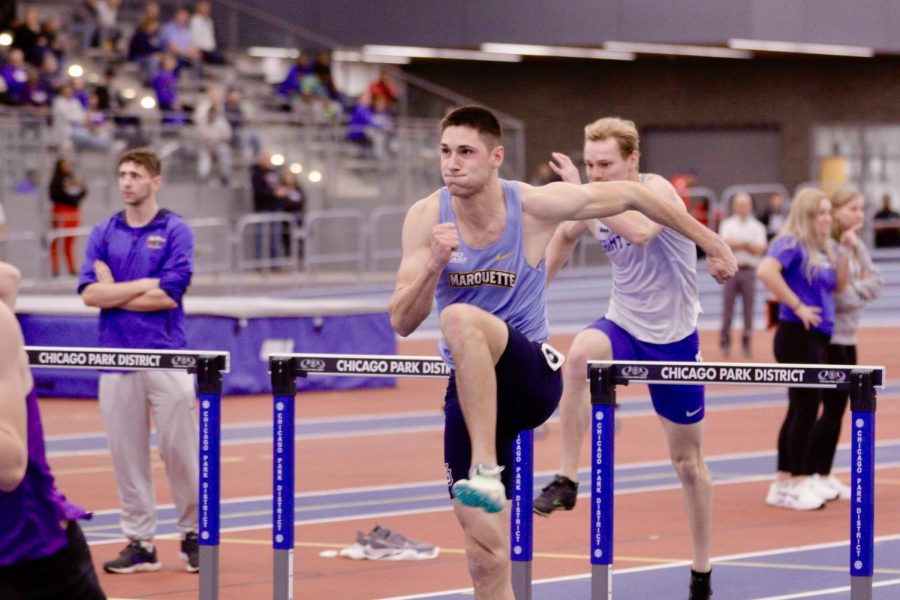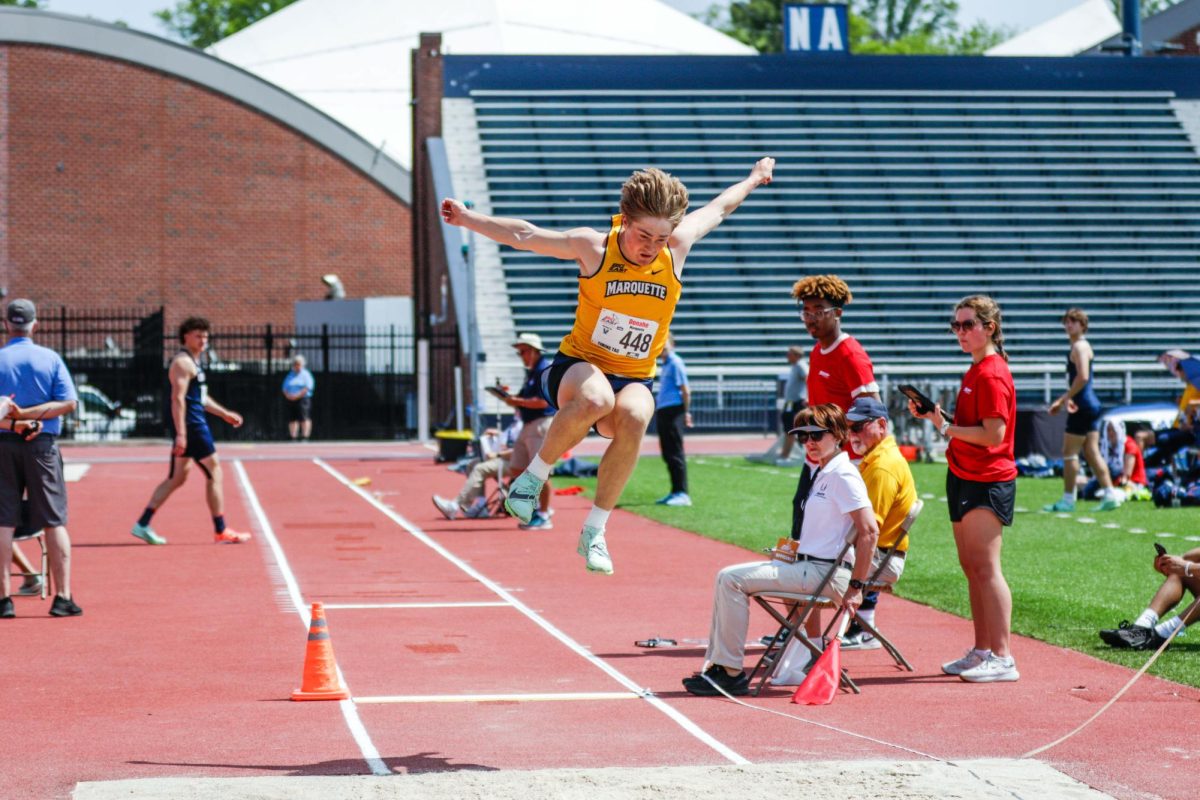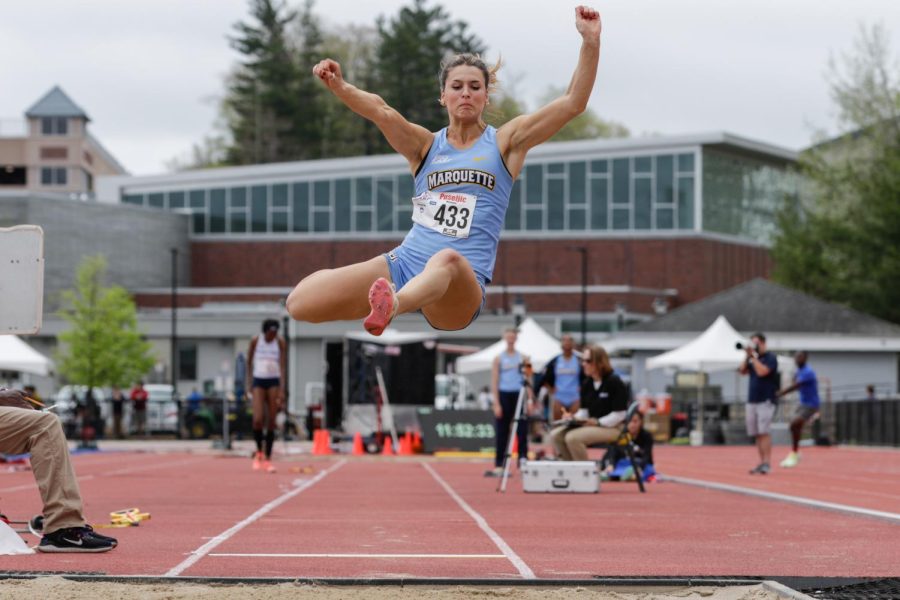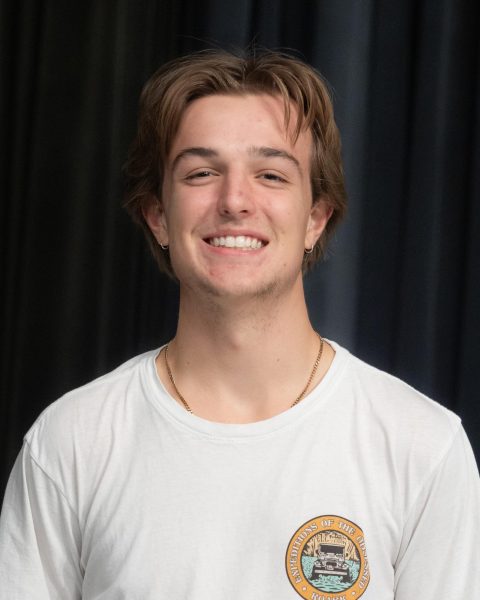In the heptathlon, you don’t have to be the best at every single event, but you do have to be competitive in throwing, running, hurdling and jumping.
The heptathlon includes the 100-meter hurdles, high jump, shot put, 200-meter dash, long jump, javelin throw and 800-meter race.
With so many different events, first-year multi-event athlete, Cole Donahe said that you can’t put all your power into one or else the six others will be tough.
“Being successful comes from using your energy correctly,” Donahe said. “If you know you’re not the best at one event, you can’t stress about that too much, because you have six other ones that you can make up for that mistake. The events you’re really good at is where you devote your time because that’s where you’ll get the majority of points.”
Senior multi-event athlete Simon Werven said he follows this advice, and because of it, he received first place in the heptathlon event with 4,842 points at the Bill Clinger Classic in Michigan. The best score you can receive in every event is 1,000 points.
“It was a great meet. It was our first heptathlon of the year, so it’s really good to get back into it,” Werven said. “I’ve broken 5,000 points last year so it wasn’t the score that I wanted, but at the same time, it was really great to get back out there and perform the way I did.”
With the knowledge that Werven has gained from his success and extensive experience, first-year multi-event athlete Gus Kasun said that Werven can give younger athletes advice to perform well.
“He [Werven] told us that we’re not going to be the best at everything, but you just have to embrace the jack of all trades role,” Kasun said. “He emphasizes that we have to be comfortable with the uncomfortable and that we have to adapt to every single new environment that we’re in with all seven events.”
Multi-event coach Adam Meyer said he sees how Werven is giving these young athletes valuable lessons. He said that Werven becomes an even better athlete by doing this because with teaching comes improvement.
“He does a great job at leading the other heptathlon athletes because they’re freshmen,” Meyer said. “I think the leadership and teaching also have helped him this year to put some things together. When you start to coach or teach other people, I think you learn a lot better. He’s done that really well.”
MU wrapped up action this morning at GVSU with the conclusion of the heptathlon. Simon Werven and Gus Kasun took home the top two spots!#WeAreMarquette
MEET RECAP/RESULTShttps://t.co/1Z6K1Ygnfw
— Marquette TF/XC (@MUTFXC) January 28, 2023
As a first-year, Kasun said there are a lot of nerves that come with having to do seven different events at one meet.
He said one thing Werven has taught him has been how to mentally prepare for meets.
“When I talked to Simon when we were competing, he told me that after putting in the practice, there’s nothing else you can do to prepare,” Kasun said. “You just have to get yourself mentally ready. There’s no other way to articulate it really.”
On top of mental toughness, Werven said one also needs to be very deliberate in what to focus on.
“Time management is an extremely important part of the event,” Werven said. “A lot of it is dividing and conquering while also building up a schedule for your training. You need to divide the time you have to be able to improve for every single event.”
With that time, Meyer said he takes a more beneficial hands-off approach in regard to figuring out what the athletes need to improve on.
He said he thinks it’s better when they have to put in the time for success.
“I’m really just giving them the tools to make themselves better,” Meyer said. “I can’t just feed them step-by-step. I think it’s better to learn by doing and failing and learning from those mistakes. I give them the guidance and try to let them figure it out on their own.”
Donahe said he likes the way that Meyer facilitates practice because he has learned valuable lessons in training and competing.
“My favorite part about being a multi-event athlete is that it translates to life super well,” Donahe said. “What I’ve learned is balance. You’re not going to be incredible at everything in life, just like in the multi. So, it’s about balancing your strengths versus your weaknesses. Sometimes, you have to work on your weaknesses. You might not like working at what you suck at, but you have to to get better.”
This story is written by Ben Hanson. He can be reached via email at [email protected] or on Twitter @benhansonMU.






